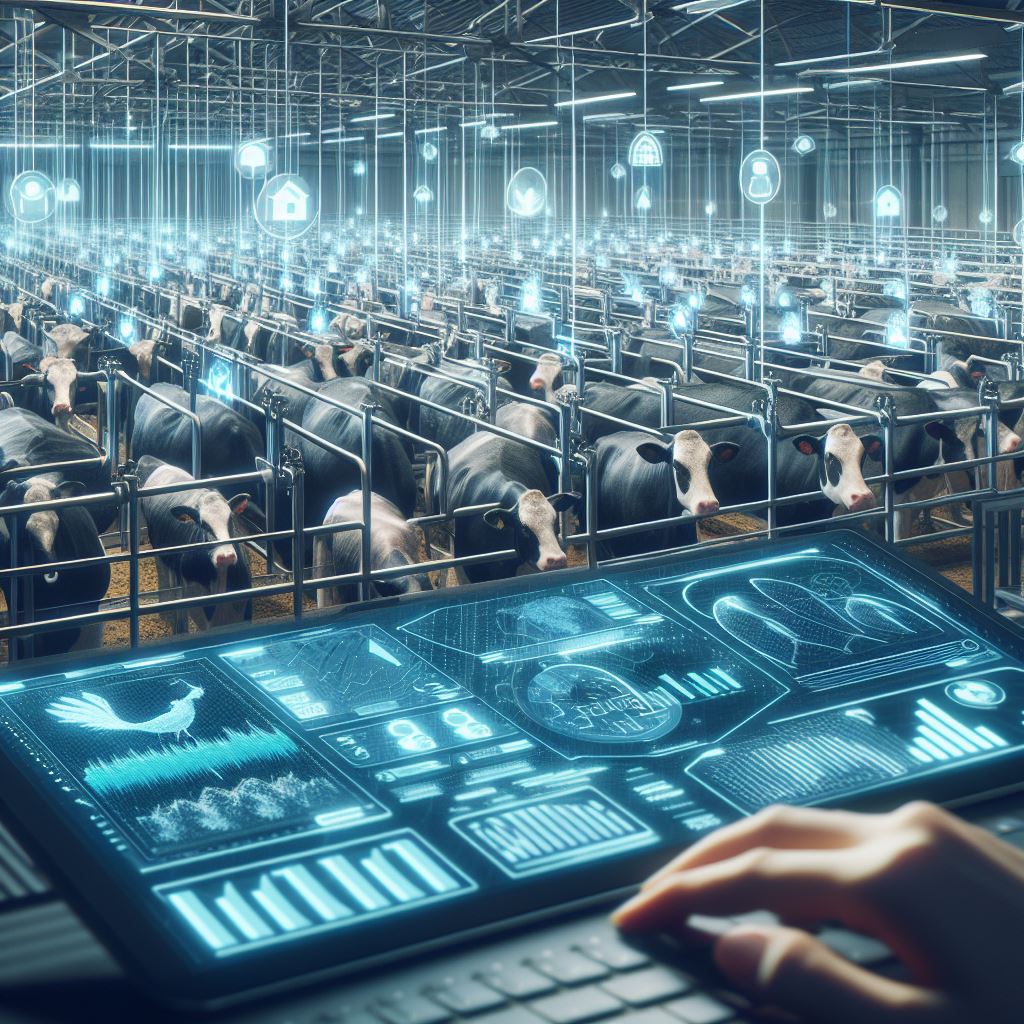
Digital Livestock Farming. Module description
Module 3 is designed to equip participants with the knowledge and skills needed to integrate digital technologies into the farming practices and revolutionise the approach to livestock farming. This module provides a comprehensive exploration of digital technologies in livestock production, from the fundamentals to practical applications. It aims to equip students with the knowledge and skills needed to contribute to sustainable and efficient livestock farming practices.
In addition, Module 3 emphasises the role of digital livestock technologies in achieving sustainable development goals:
- Economic efficiency: Optimising resource allocation and production costs.
- Reduced environmental impact: Minimising waste and carbon footprint.
- Improved animal welfare: Improving animal health and welfare.
- Improved working conditions: Streamlining farm operations and reducing labour requirements.
The Basic knowledge which is provided within Module 3:
- The core concepts of digital livestock farming.
- The evolution of digital farming from precision to smart and digital systems.
- The main components used in digital farming, including sensors, software and artificial intelligence (AI).
- The positive impact of digital livestock farming on farm operations.
- Practical applications of these technologies in cattle, pig and poultry production.
The Module is structured with different course formats:
- Lectures: basic understanding of digital animal husbandry through interactive lectures.
- Farm visits: Practical skills by visiting farms using these technologies.
- Exercises: Put what you learn into practice by completing exercises to reinforce what you’ve learned.
- Case studies: Analysing real-life scenarios, putting digital tools to work.
- Discussions: Discussion of topical issues to explore the course topics in depth.
By the end of this module the students will be able to:
- Explain the principles of digital livestock farming.
- Describe the different components used in digital farming systems.
- Analyse the benefits of digital technologies for livestock production.
- Apply these technologies to improve animal health, welfare and production efficiency on cattle, pig and poultry farms.
